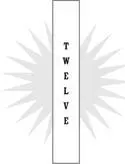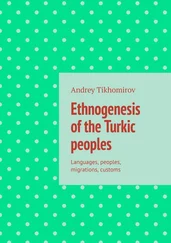Only it didn’t happen. Esperanto did not become a universal language. It became instead a particular language of a particular community.

After World War II, there was a push to rid the Esperanto movement of its eccentricities, spearheaded by Ivo Lapenna, a Yugoslavian Esperantist and academic lawyer. He held important positions: professor of international law at Zagreb University, counsel-advocate at the International Court of Justice at The Hague, and professor of Soviet and East European law at the London School of Economics. Peter Forster, in his book The Esperanto Movement , described Lapenna as having “the sophistication of the cultured cosmopolitan.” He was “fluent in several languages” and had “distinguished himself as a sportsman and a musician.” You can imagine why such a genteel character might not be happy with the public image of Esperanto. After attending the 1947 universal congress in Bern, he published an angry plea for respectability, lashing out against the “naivetés and frivolities which only compromise the cause of the International Language.” He complained that “the dissemination of Esperanto among serious people” was threatened by the “cranks” he had observed:
One woman with green stockings explained to me that every lady Esperantist should wear only green stockings for propaganda purposes. One came to the ball in a dress, like a nightdress, with masses of green stars, large, medium and small. I saw a loud yellow tie with an even louder green star woven into it. In general, one could see stars everywhere; on the chest, in the hair, on belts, rings, etc.
People will say again that everyone has the right to dress as he wishes. Certainly; but could we not kindly request such cranks not to hinder the spread of Esperanto by their standpoint and external appearance? If that does not work, have we not at least the right to make a mockery of them, since they make a mockery of Esperanto?
War’s end had ushered in a new era of international communication and organization, and Lapenna did not want Esperanto to sabotage once again its chance to enter the world stage in an official capacity. Proposals for Esperanto endorsement after World War I had received serious consideration at the League of Nations. There was enough opposition (the most vocal from the French delegation, which claimed that French was already the universal language) to prevent the League from taking up the cause of Esperanto, though it did accept a resolution to recommend that it be considered a regular language, rather than a code, in the determination of fees for telegraph messages.
The dislocations of World War II convinced Lapenna, among others, that there was a fresh chance for Esperanto, and after a petition bearing the signatures of more than 500,000 people and 450 organizations was submitted to the United Nations, UNESCO began to look into the matter. With great hopes for success, La-penna presented an eloquent case for Esperanto. Ultimately, the UNESCO delegates adopted a resolution expressing affinity between the goals of Esperanto and the goals of UNESCO. The Esperanto community celebrated this as a victory, but no concrete measures had really been endorsed. UNESCO essentially only agreed that, yes, Esperanto is a nice idea.
Lapenna’s attempts to put a respectable face on Esperanto were not appreciated by everyone, and the cranks had an ardent voice in John Leslie, a.k.a. Verdiro (truth teller), the secretary of the British Esperanto Association. Leslie is described in Forster’s book as “an ‘anarchist, freethinking, patriotic Scot’ … He objected to supporting UNESCO, regarding it as a bulwark of financial capitalism … He also opposed formality in dress and defended deviations … He praised the informal equality among Esperantists of all walks of life and criticized the importance attached to attracting those famous in other spheres.” In direct opposition to Lapenna, Leslie promoted an attitude of crank pride among the green-stocking crowd.
The 1947 congress that Lapenna found so disturbing was also important in the life of a young Hungarian named George Soros. His father, Tivadar, was an active Esperantist and had changed the family name from Schwartz to Soros, an Esperanto verb meaning “will soar.” Tivadar had escaped from a Siberian prison during World War I and managed to keep his family away from the Nazis during World War II. When the communists took over in 1947, Tivadar and George escaped to Switzerland, where they attended the Esperanto universal congress in Bern. Afterward, the father returned to Hungary and the son went on to Ipswich, England, for the annual world youth congress. Young George decided he wanted to stay in England, but he had only a tourist visa. He appealed to his fellow Esperantists for help, and it was Verdiro (Leslie), through a relative in the British parliament, who arranged George Soros’s more permanent visa.
On his way to becoming one of the world’s richest men, Soros was for a time actively committed to the Esperanto movement. According to the minutes of the Ipswich conference, he wanted to organize a bicycle trip through Europe, spreading the word. He also extolled the virtues of Esperanto at Speakers’ Corner in London’s Hyde Park, where anyone with an opinion and the bravery to mount a soapbox can compete for an audience. But he has long since stopped having anything to do with it. A Belgian woman I spoke to at the Havana congress told me bitterly, “He could do so much to help now, but he is a traitor. He hates Esperanto.”
I asked Humphrey Tonkin, who did the English translation of Tivadar Soros’s memoir of survival during World War II, for which George wrote the foreword, why Soros had changed his mind. “He doesn’t hate Esperanto,” Tonkin said. “He hasn’t given up on its ideals, but his position is that it had its chance and it blew it. Which is a perfectly respectable view.”
Born in Britain and educated at Cambridge and Harvard, Tonkin is an Esperantist but definitely not a kook. He’s a professor of English specializing in Spenser and Shakespeare, a former Guggenheim fellow, and president emeritus at the University of Hartford. “Staying sane while dealing with something that is so low in the popular esteem is problematic,” he told me. “It’s a distressingly marginal community. Sometimes when I’m at Esperanto meetings, I say to myself—and this sounds terrible—I say, ‘Am I really like that?’ But then I sit in a faculty meeting, and I think to myself, ‘This is not terribly different from an Esperanto congress,’ because it’s true. The fact is that overall, people are wackier than one imagines. So perhaps Esperanto is not that far-out.”
Tonkin knew about the fringe quality of Esperantoland from the moment of his first contact with it. On a trip to Paris when he was barely a teenager, he went to a meeting of the Paris Esperanto Society. When the meeting was over, Tonkin said, he was followed out by “your sort of typical 1950s Paris Marxist, and he bent my ear at enormous length about Marxism. The awful thing about it was that I discovered that Esperanto really works. I understood every word he said.”
He was in it for better or worse. When he was not yet sixteen years old, Tonkin traveled, by himself, from England to an Esperanto congress in Denmark and fell into a world full of interesting things. “Not that I found Esperanto was a comfort exactly, but it provided me with opportunities that I couldn’t find in the rest of my life,” he said. “Everything I know about Latvian culture, for example, I know about as a result of Esperanto.”
Читать дальше













